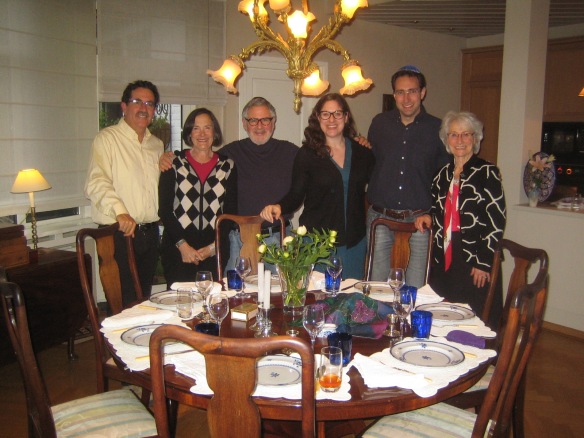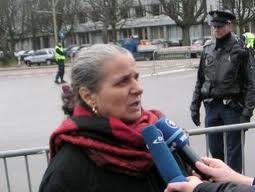I wrote, spoke and now publish this Yom Kippur kavanah (intention before prayer) in honor of the many people I love whose tables are impacted by the heartbreak that accompanies mental illness. I do this with humility, aware of the magnitude of the complexity of this topic, but also aware that, in my opinion, silence is no longer an option. I share this with the hope that naming this disease will help all of us support each other as we, together, search to find both cures and healing for all types of mental illness.
For the Sin of Silence on the Topic of Mental Illness
Introduction to Musaf Amidah, Yom Kippur, 5775-2014
Congregation Beth Shalom, Seattle, WA,
Beth Huppin
During the past few years, I have made an effort to reconnect with former students and old friends. Many common themes arose over the course of these conversations, including a topic rarely discussed in public Jewish spaces.
I have lost track of the number of times I’ve sat down with a friend, a former student, or a parent of a former student, and heard about their struggles with mental illness – either their own illness or the illness of a loved one. No age is exempt, from children in grade school to grandparents.
Though there are many forms and manifestations of this disease, the impact of mental illness is often the same:
It is exceptionally challenging,
often unremitting,
frequently invisible to others,
hard –if not impossible- to explain,
enraging,
isolating,
and – without exception – excruciatingly difficult.
I hear these stories in confidence because, in addition to all the other pain, there is a weight of shame in our society around issues of mental health. And from that my heart is broken even further.
This disease that we are afraid to talk about – it can be so devastating.
—–
We are about to say the Amidah and we will list our sins in the plural. By saying “we” have sinned, I acknowledge that I’m responsible for you – and you acknowledge that you are responsible for me, even – and maybe especially – if responsibility isn’t easy.
And so, in response to many confidential and painfully honest conversations, I add to our communal list of responsibilities and sins. I do this fully aware that the list I am about to recite is incomplete, and yet we must begin with something:
Al chet shechatanu l’fanecha: Source of Forgiveness, we have sinned against You:
We have sinned against You by not naming mental illness publically, and by allowing people in our community to suffer in silence.
We have sinned against You through denial – pretending that this disease strikes others and that we are immune.
We have sinned against You through hardening our hearts to those who struggle with mental illness.
We have sinned against You through condescension – judging rather than truly supporting.
We have sinned against You by not insisting that mental health treatments be fully covered in all basic health insurance plans.
We have sinned against You through the idle chatter of trite advice when, in reality, silence and presence could be healing.
Creator of Life, we have sinned against You by blaming You for creating us so fragile and vulnerable to disease – including diseases of the brain. We rail in fury against You rather than turn to You for support.
But, at other times we have sinned against You, Source of Compassion, by not crying out to You, by not trusting that You have the capacity to hold the depth of our sorrow and rage and so we ignore You or try to hide our fury from You. By lack of honesty, we distance ourselves from You – and we distance ourselves from each other.
Today – as a community – we are naming mental illness. And in doing so, we turn in truth to You, Source of Truth – and we turn to each other as well – vulnerable – seeking support and strength and unconditional, nonjudgmental acceptance and love.
And with open and yearning hearts, we say to You in each other’s presence: v’al kulam eloha slechot – for all this, forgiving God, s’lach lanu, m’chal lanu, kaper lanu – forgive us, pardon us, grant us atonement….
and with humility and longing we also ask you- rofeh chol basar – Healer of all flesh -please – grant us healing.













